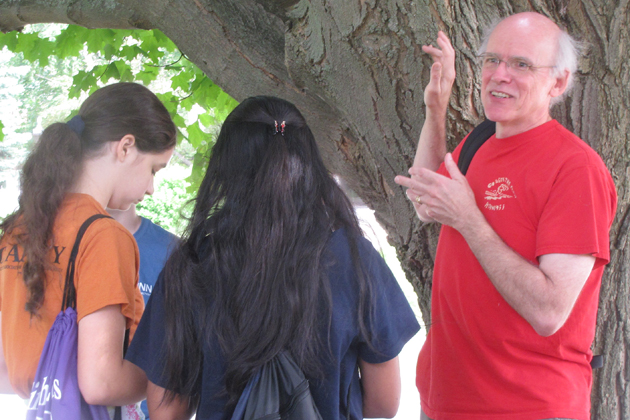
Who doesn’t like to look at squiggly things under a microscope?
Combining the efforts of the Department of Molecular and Cell Biology with those of the Connecticut State Museum of Natural History, a Magnificent Microbes course recently offered students a fascinating look at some of the tiny organisms that populate our planet.
Kenneth Noll, professor of molecular and cell biology, taught the course for the first time this summer as part of UConn’s Kids are Scientists & Engineers, Too (KASET) program. He is as enthusiastic about the experience as the students were.
“If we’ve opened their eyes so that they will walk around and see the world in a different and appreciative way, then the course will have been a success,” Noll says.
Among the topics covered in the week-long session were microscopic organisms that keep our food good, and those that make it go bad. Students learned how yeasts make bread and how bacteria makes yogurt, as well as finding out how to keep kitchens clean from the microbes that can make people sick.
Moving outside, participants hunted for microbes that are found in lawns, ponds and woods. They even got to collect termites so they could discover the microbes that live in the digestive tracts of these insects, enabling them to digest complex sugars found in wood into simpler molecules that they can use for food.
Students variously described the course as being ‘cool’ and ‘fun’ and ‘interesting’ — all indications that they did what Noll had hoped for – looking at the world in different and appreciative ways.
Other courses offered through the 2014 version of this popular summer program include topics as varied as marine exploration, astronomy, biomedical engineering and chemistry, all of which provide students in grades five through 10 with an introduction to the STEM fields.





For more on microbes, see:
Uninviting Microbes to Your Summer Outing



